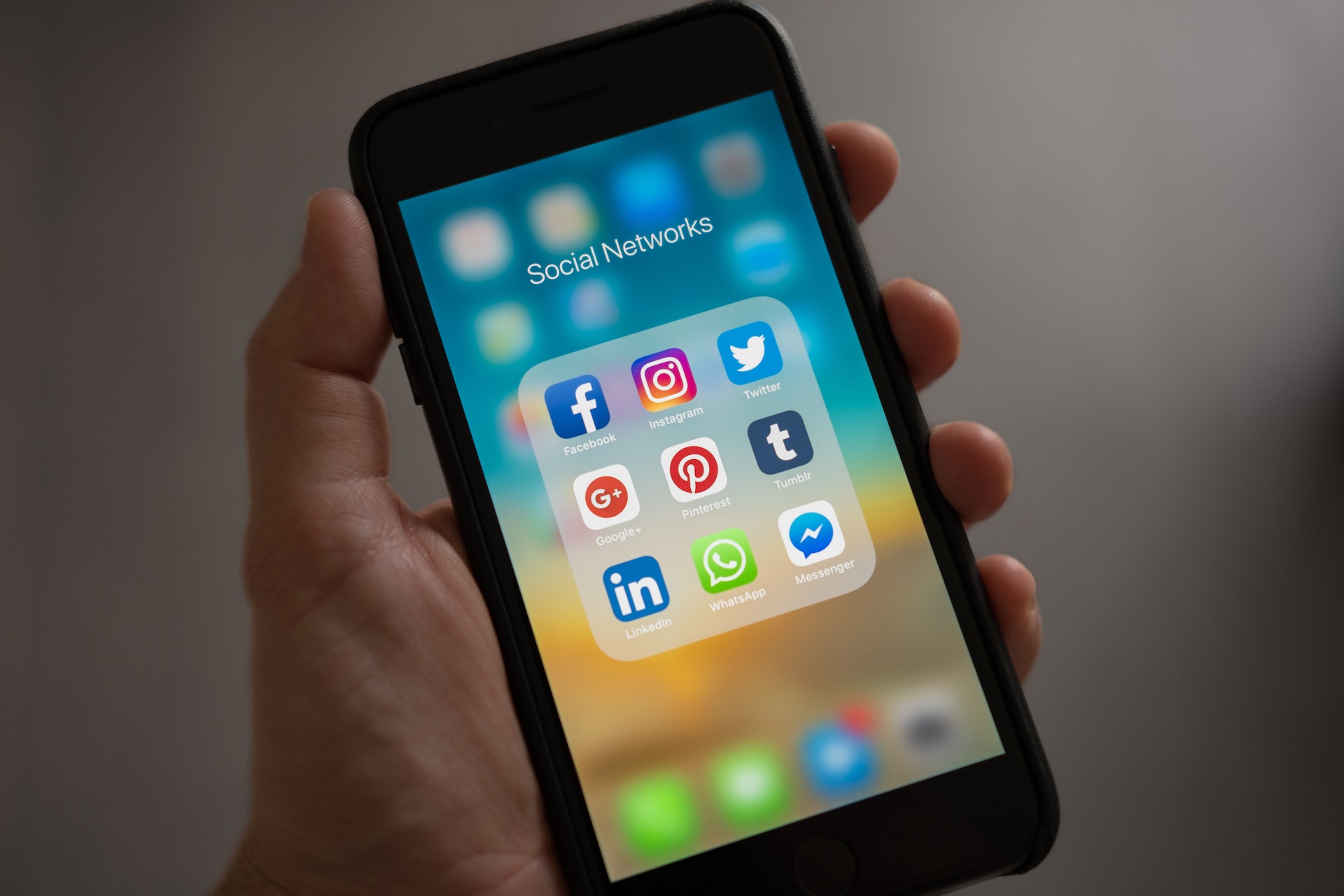

We live in a time when mindless scrolling has become an epidemic. Despite knowing that it’s a bad habit, we all do it. According to Reviews.org, 56.9 percent of Americans are addicted to cell phones. Each day, Americans spend 4 hours, 25 minutes on their phones. Nevertheless, experts recommend reducing scrolling and screen time outside work to two hours a day for adults.
Excessive phone use can result in:
- Anxiety and depression. Increased phone use is linked to anxiety, depression, and decreased well-being.
- An increase in stress. As a result of using a smartphone for work, work often bleeds into your personal life as well. There is constant pressure to stay connected with work, to never be out of touch. It can lead to higher stress levels and even burnout if you constantly check and respond to messages.
- Information overload. You may be less productive when you spend hours surfing the internet, watching videos, playing video games, or checking your news feeds. If you spend too much time on the internet or smartphone apps, you may neglect other areas of your life, such as hobbies, relationships, and socializing.
- Neck pain and poor posture. You can suffer from severe neck and back pain if you constantly stare down at your phone. As a result, spending hours every day tilted forward can put a lot of pressure on your neck. It’s even called “text neck.”
- Headaches and eye strain. If you stare at your phone screen for too long, you may experience headaches and blurred vision, leading to eye strain.
- Poor sleep. Getting a good night’s sleep is difficult when your phone screen blasts out blue light that interferes with your body’s natural production of melatonin.
However, it is hard to reduce scrolling.
Are you ready for the good news? If you want to reduce scrolling mindlessly, there are small steps you can take. Putting these 11 tips into practice is easy, and they actually work.
Related: Are You Addicted to Your Phone?
1. Get to know your smartphone habits.
If you want to break any habit, what’s the first step? It must be understood.
Therefore, you might find it helpful to track your smartphone habits by answering the following questions:
- What is the average number of times you check your phone?
- Which apps do you use the most?
- When are you most likely to scroll?
As you become more familiar with your habits, you can uncover the triggers that cause you to pick up your phone. For example, you can begin to develop healthier ways of dealing with your emotions when you find you scroll when bored or anxious.
2. Turn off notifications.
I know what you’re thinking, “Thanks Captain Obvious.” However, turning off push notifications is one of the easiest ways to reduce scrolling.
Does it really matter if you get an alert whenever someone likes your Instagram post, or retweets your tweet? If you use any non-essential apps, including phones, messages, and possibly WhatsApp, you should turn off notifications for those apps. Doing so lets you notice how much freer you feel since you won’t be bombarded with notifications.
3. Switch to helpful social media apps.
In extreme cases, you might want to remove all social media apps from your phone. Accessing them through a browser will be more time-consuming and less user-friendly, and you may not be able to access them as often.
By downloading apps that facilitate mindfulness and meditation, newcomers can gain access to these practices more easily. Stress can be reduced, and better sleep can be obtained through mindfulness and meditation.
An excellent place to start is with Headspace and Calm, which offer guided meditation practices focusing on breathing, sleep, and relaxation. The benefits can be seen as soon as ten minutes per day.
4. Avoid charging your phone in your bedroom.
Smartphones are the last thing most people check before going to sleep. In addition, one in three people check their smartphones at night.
To solve this problem, you should charge your phone somewhere else besides next to your bed. If this isn’t an option — at least put your phone on silent at night.
5. Install digital locks.
What can you do if you find it impossible to put your phone down with willpower? Here are some tools you can use to limit your screen time:
- Screen Time. With Apple’s Screen Time feature, you can track how much time you spend on your phone or tablet. You can disable certain features or set time limits on specific apps to kick your smartphone habit.
- Digital Wellbeing. With Digital Wellbeing for Android, you can view which apps and websites you use most and set daily limits. When you reach the limit, these apps and sites will pause, and your notifications will stop.
- Freedom. You can block sites and apps using this app on iOS and Android devices.
- Antisocial. With this app, you can track your smartphone usage and block the apps you use the most.
- Off the Grid. Schedule the period between which you don’t want distractions, and the app will handle the rest.
6. Use the 20-20-20 rule to reduce scrolling.
Eye damage can also occur as a result of excessive screen use. As a result of focusing too much on close objects—like phone screens—for too long, digital eye strain has become increasingly common in adults, according to Dr. Megan Collins, assistant professor of ophthalmology at Johns Hopkins Medicine’s Wilmer Eye Institute. It can lead to fatigue, pain, and blurred vision in the eyes. It has also been suggested that excessive screen time during the pandemic may even contribute to myopia rates, which is nearsightedness.
It’s recommended by ophthalmologists that you take 20-second breaks every 20 minutes from your screen by focusing on an object 20 feet or more away. “It helps the eyes from being in this prolonged state of accommodation and focusing on things up close,” Collins explains.
7. Designate zones for phone use.
In many cases, it is suggested to create phone-free zones. What if you went one step further than creating a no-phone zone?
For example, suppose you decide only to use your phone at your desk during breaks or on the couch. If you do this, you will avoid taking your phone everywhere and, ultimately, reduce scrolling. It will even improve your sense of presence and engagement.
8. Find other activities to fill your time.
It’s more likely that you’ll reach for your phone if you’re bored. Instead, explore other activities you find enjoyable, such as:
- Reading a book.
- Listening to a podcast.
- Walking, biking, or hiking.
- Drawing or painting.
- Writing in a journal.
- Learning a new skill.
- Spending time with loved ones.
- Observing your thoughts and feelings while sitting still.
Related: 8 Ways to Minimize Screen Time and Maximize Family Time
9. Rethink your relationship with technology.
“I don’t pick up the phone unless it’s helping me connect with my priorities,” says Dandapani, a Hindu priest, former monk, and author of The Power of Unwavering Focus. The first step is to determine what you want. He says it will then be easier to see how technology fits into your life.
According to your needs, you can choose which apps to install and what notifications to receive. As you interact with your phone, it will become evident when and how to do so. When you define the purpose and relationship, managing technology becomes much less difficult. “But if I don’t have that purpose and relationship defined, then every time it chimes, I respond,” Dandapani adds.
10. Set realistic goals.
It’s impossible to reduce scrolling overnight; rather than setting big goals, set smaller, realistic ones. Try limiting your scrolling time to 30 minutes a day, to begin with.
11. Consider cognitive behavioral therapy to reduce scrolling.
CBT is based on the idea that thoughts influence our emotions and behavior and that changing your thoughts will change how you feel and act.
Identifying the underlying thoughts or beliefs driving your excessive phone use can be accomplished with the help of a CBT therapist.
Due to the lack of clinical recognition of cellphone addiction, treatment options are limited. There is evidence that mindfulness-based CBT may help, including a 2018 pilot study published in Trusted Source.
By employing mindfulness-based CBT, you can create some distance from your thoughts and urges rather than acting on them right away.











John Rampton
John’s goal in life is to make people’s lives much more productive. Upping productivity allows us to spend more time doing the things we enjoy most. John was recently recognized by Entrepreneur Magazine as being one of the top marketers in the World. John is co-founder and CEO of Calendar.